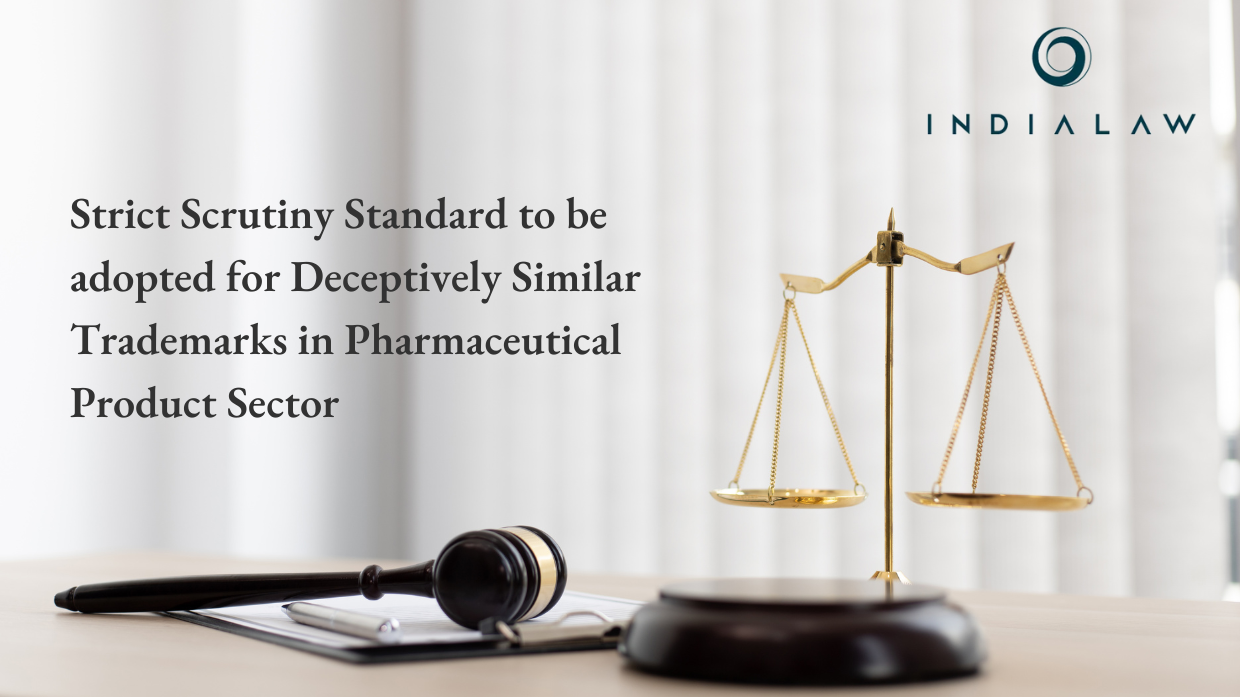Strict Scrutiny Standard to be adopted for Deceptively Similar Trademarks in Pharmaceutical Product Sector

The Hon’ble Bombay High Court (“HC”) recently held[i] that a trademark cannot be granted, by holding that structurally & phonetically similar trademark ought not to be registered for a drug of similar aliment, having a varied composition from a pre-existing registered mark. This ruling aims to prevent any potential confusion among consumers which could result in possible adverse effects.
The HC was hearing an Application for ad-interim reliefs in a commercial IP Suit filed by Glenmark Pharmaceuticals Ltd. (“Plaintiff”). The Plaintiff is a proprietor of the registered word mark “ZITA-MET” and ZITA-MET formative trade marks in Class 5 and engaged in pharmaceutical and medicine preparation industry. The suit was filed against Gleck Pharma (OPC) Pvt. Ltd. (“Defendant”) also doing business in the same industry. It was alleged by the Plaintiff that the trademark application filed before the registry by the Defendant for the word mark “XIGAMET” in respect of Class 5. As a consequence, the Plaintiff filed a Notice of Opposition before the Ld. Registry against aforesaid trademark application.
After examining the evidence filed by the Defendant, it came to the knowledge of the Plaintiff that the Defendant was selling medical products under the word mark “XIGAMET”. Following which, the Plaintiff issued a Cease-and-Desist notice to the Defendant. Subsequently, the Defendant filed a suit before the Hon’ble High Court of Jammu and Kashmir contending that the Plaintiff’s actions are baseless and merely wants to threaten the Defendant. Upon which, the Hon’ble Court was pleased to grant temporary injunction to the Defendant and in addition, directed restraint / interference by the Plaintiff in the Defendant’s manufacturing distribution, and sale of products branded as “XIGAMET”.
Aggrieved by the above mentioned decision of the Hon’ble Court, the Plaintiff filed an interim application in the commercial IP Suit seeking to prohibit the Defendant from using the trademark “XIGAMET” in relation to any medicinal preparations, as well as from using any other mark that could be perceived as deceptively similar to “ZITA-MET.”
The HC placed reliance on a Supreme Court decision in Cadila Health Care Ltd. v. Cadila Pharmaceuticals Ltd[ii]. wherein the Hon’ble Apex Court laid down the approach for considering deceptive similarity concerning trademarks used on medicinal products and opined that even the slightest possibility of plausible confusion in the case of any medical product may require the use of such a mark to be restrained.
The HC further noted that an average person may not profess knowledge of the English language or any other language in which the trademark is being registered. The HC took a stance that, from an average person’s intelligence the mark “XIGAMET” of the Defendant was deceptively similar to the trademark “ZITA-MET” of the Plaintiff. The HC relied upon the decision of the Hon’ble Delhi High Court in Glenmark Pharmaceuticals Ltd. v. Sun Pharma Laboratories[iii]wherein a similar test for determining similarity had been laid down.
In conclusion, the HC court emphasized that even professionals such as physicians and pharmacists are susceptible to confusion, especially when faced with phonetically and structurally similar trademarks on medicinal products. This vulnerability is compounded by factors like illegible prescriptions and orders placed over the phone. Given the potential for severe consequences from mistaken medication, particularly in cases where drugs are meant to treat the same ailment but differ in composition, the HC held that a strict standard to assess deceptive similarity is to be adopted.
[i] Interim Application (L) No.30450 Of 2023; Commercial IP Suit (L) No.30149 Of 2023.
[ii] (2001) 5 SCC 73.
[iii] FAO (OS) (Comm) No. 146 of 2023.
By entering the email address you agree to our Privacy Policy.



